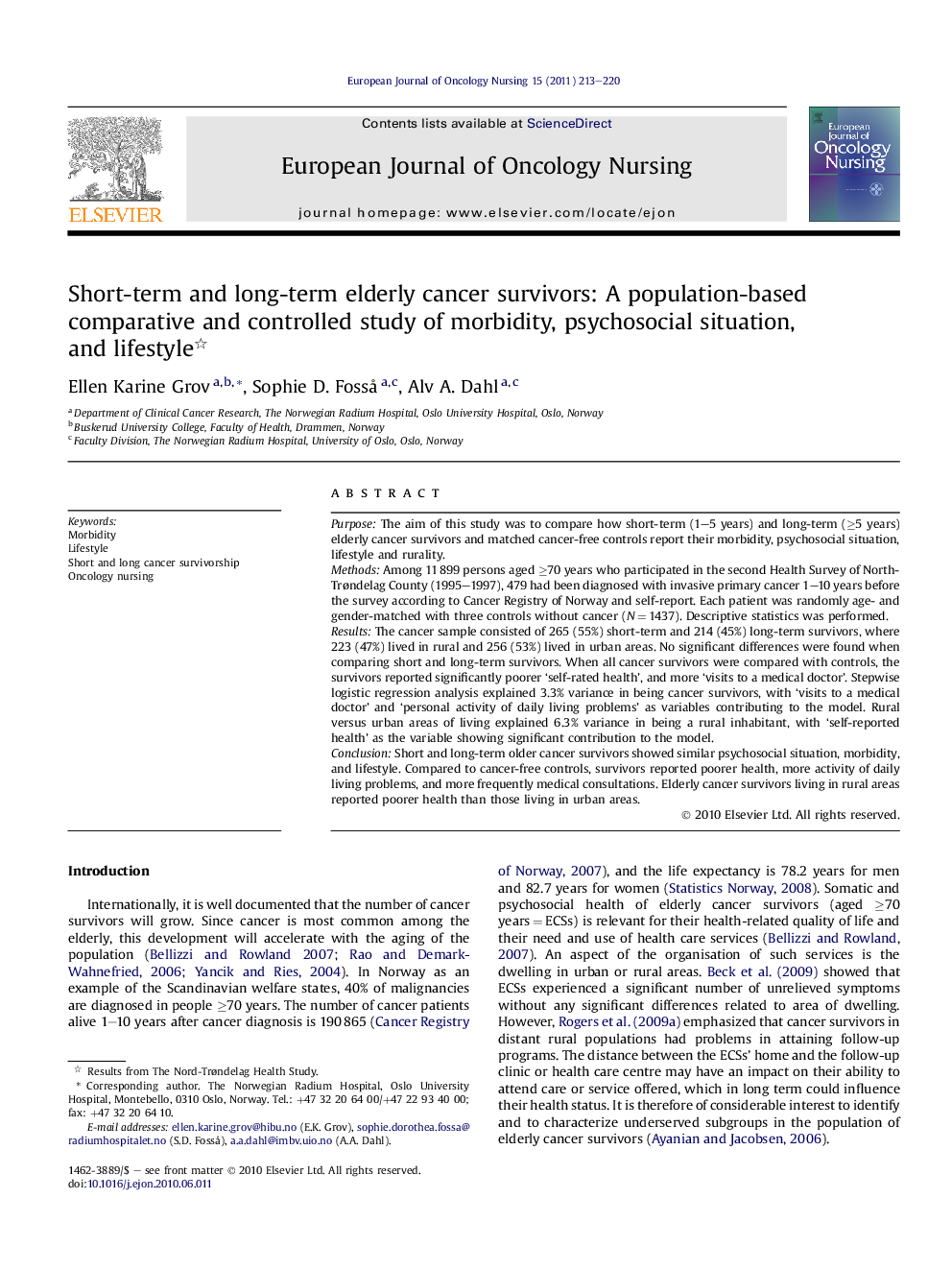| Article ID | Journal | Published Year | Pages | File Type |
|---|---|---|---|---|
| 2649876 | European Journal of Oncology Nursing | 2011 | 8 Pages |
PurposeThe aim of this study was to compare how short-term (1–5 years) and long-term (≥5 years) elderly cancer survivors and matched cancer-free controls report their morbidity, psychosocial situation, lifestyle and rurality.MethodsAmong 11 899 persons aged ≥70 years who participated in the second Health Survey of North-Trøndelag County (1995–1997), 479 had been diagnosed with invasive primary cancer 1–10 years before the survey according to Cancer Registry of Norway and self-report. Each patient was randomly age- and gender-matched with three controls without cancer (N = 1437). Descriptive statistics was performed.ResultsThe cancer sample consisted of 265 (55%) short-term and 214 (45%) long-term survivors, where 223 (47%) lived in rural and 256 (53%) lived in urban areas. No significant differences were found when comparing short and long-term survivors. When all cancer survivors were compared with controls, the survivors reported significantly poorer ‘self-rated health’, and more ‘visits to a medical doctor’. Stepwise logistic regression analysis explained 3.3% variance in being cancer survivors, with ‘visits to a medical doctor’ and ‘personal activity of daily living problems’ as variables contributing to the model. Rural versus urban areas of living explained 6.3% variance in being a rural inhabitant, with ‘self-reported health’ as the variable showing significant contribution to the model.ConclusionShort and long-term older cancer survivors showed similar psychosocial situation, morbidity, and lifestyle. Compared to cancer-free controls, survivors reported poorer health, more activity of daily living problems, and more frequently medical consultations. Elderly cancer survivors living in rural areas reported poorer health than those living in urban areas.
